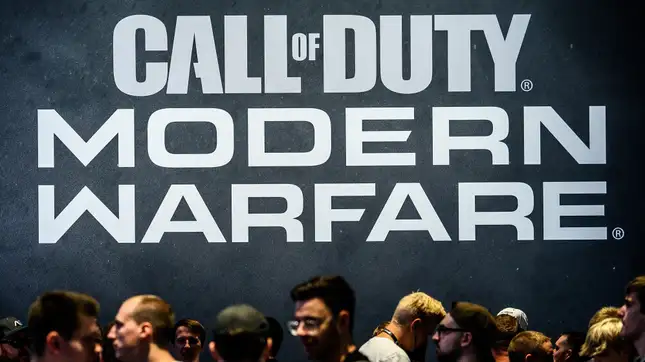
Activision Blizzard announced yesterday that Frances F. Townsend, a former George W. Bush-era counterterrorism appointee and torture apologist, would become its new head of compliance, in charge of making sure the company doesn’t run afoul of the varying laws and regulations throughout all of the countries the Call of Duty maker does business in.
According to an interview with the Wall Street Journal, two of Townsend’s big focuses will be on player data privacy and monitoring the evolving regulations around things like loot boxes. “[I]t’s important that we are involved in the conversation as regulations are being considered,” she said. “Often legislators are legislating on things they’re not entirely familiar with, and when they do that, it can have consequences that they didn’t intend.”
Activision Blizzard CEO Bobby Kotick, who made almost $100 million in bonuses over the past four years, called Townsend a “highly regarded public servant” in a press release yesterday, while the newly appointed compliance officer called Kotick a “transformational leader.”
Townsend began her career in politics as a prosecutor, promoted to the Southern District of New York by Rudolph Giuliani in the late 1980s before moving to the Justice Department, where she worked throughout the Bill Clinton administration. When Bush took over she was eventually tapped to be the “top White House adviser on counterterrorism and homeland security.” This position made her one of the faces of the Bush administration’s heinous and disastrous “war on terror.”
She was one of the big boosters behind raising the national “terror threat level” during Bush’s close 2004 re-election campaign based on three-year old evidence, a decision then-Homeland Security chief Tom Ridge later said he was politically pressured into making. The then-head of Abu Ghraib prison where people were tortured said he felt similarly pressured to increase the amount of intelligence coming out of the interrogations following a visit by Townsend.
“[Army Lt. Col. Steven Jordan], the top military intelligence officer at Abu Ghraib, described ‘instances where I feel that there was additional pressure’ to get information from detainees, including a visit to the prison last fall by an aide to [Condoleezza] Rice] that was ‘purely on detainee operations and reporting,’” USA Today reported in 2004. “And he said he was reminded of the need to improve the intelligence output of the prison ‘many, many, many times.’” Townsend confirmed she had visited but denied the accusation, calling it “ridiculous.”

Townsend later went onto defend the Bush administration’s use of torture, including waterboarding, sleep deprivation, and forced nudity. “Regardless of what you think on the issue of whether or not waterboarding is torture, there were legal documents created and relied upon by career intelligence officials who then implemented the program,” she said during a 2009 interview with CNN after the Obama administration declassified Bush-era memos making the legal case for the CIA’s use of torture. “There were very strict controls on the program. These people relied on them and, now, to release them and to subject these people, these career professionals to a sort of public humiliation and opprobrium and then the potential of a congressional investigation really will make our intelligence community risk-averse.”
Here’s more from the interview:
Townsend: I think it’s perfectly legitimate for this attorney general and this president to decide they’re not going to use this technique. But by disclosing them you’ve really handcuffed future administrations. And by the way, the president has appointed a group to look at the effectiveness and use of these techniques. And that group has not come out with their findings yet and it really does foreclose their ability to say they are effective. In this morning’s “Wall Street Journal” there’s an op-ed by Director Hayden and former Attorney General Mukasey, that gives the example of how the use of techniques led to the ultimate capture of Khalid Sheikh Mohammed. And so there is an argument to be made that in limited circumstances these techniques can be effective in preventing terrorist attacks.
John Roberts: According to this memo, the techniques included walling, which is pushing a person against a wall. It was intended to shock, more than anything. A facial slap, which was an insult slap, according to the memo. Cramped confinement, wall standing, stress positions, sleep deprivation, insects placed in a confinement box and waterboarding. You said you weren’t a part of the policy development but were you aware of these techniques and were you concerned they might have crossed the legal line?
Frances Townsend: To tell you John, I was not a part of either the legal discussion or the policy discussion. And the enumerated list of techniques that you’ve gone through was probably one of the most closely guarded secrets even within the administration. I was aware that there was a program and it was later on that I understood not simply what the techniques were but that there were medical personnel involved, that the techniques could only be approved by the Director of CIA.
While Townsend may not have been part of the “legal discussion” around CIA torture at the time, she will be at the center of legal discussions around how Activision Blizzard operates its global company, including on policies around workplace protections and diverse hiring.
The company was recently called on by the AFL-CIO, the largest federation of unions in the country, to implement a Rooney Rule that would encourage interviewing diverse candidates for all new positions, something a number of other global companies have recently done. In a letter to the SEC obtained by Vice, Activision Blizzards called the modest proposal “an unworkable encroachment on the company’s ability to run its business and compete for talent in a highly competitive, fast-moving market.”
The publisher elaborated in an email to Kotaku that it was against the policy because it “failed to adequately consider how to apply these practices in all of the countries we operate in.” It’s unclear if Townsend’s vast prior experience will help Activision Blizzard finally figure out how to do that. The company did not respond to a request for comment.

